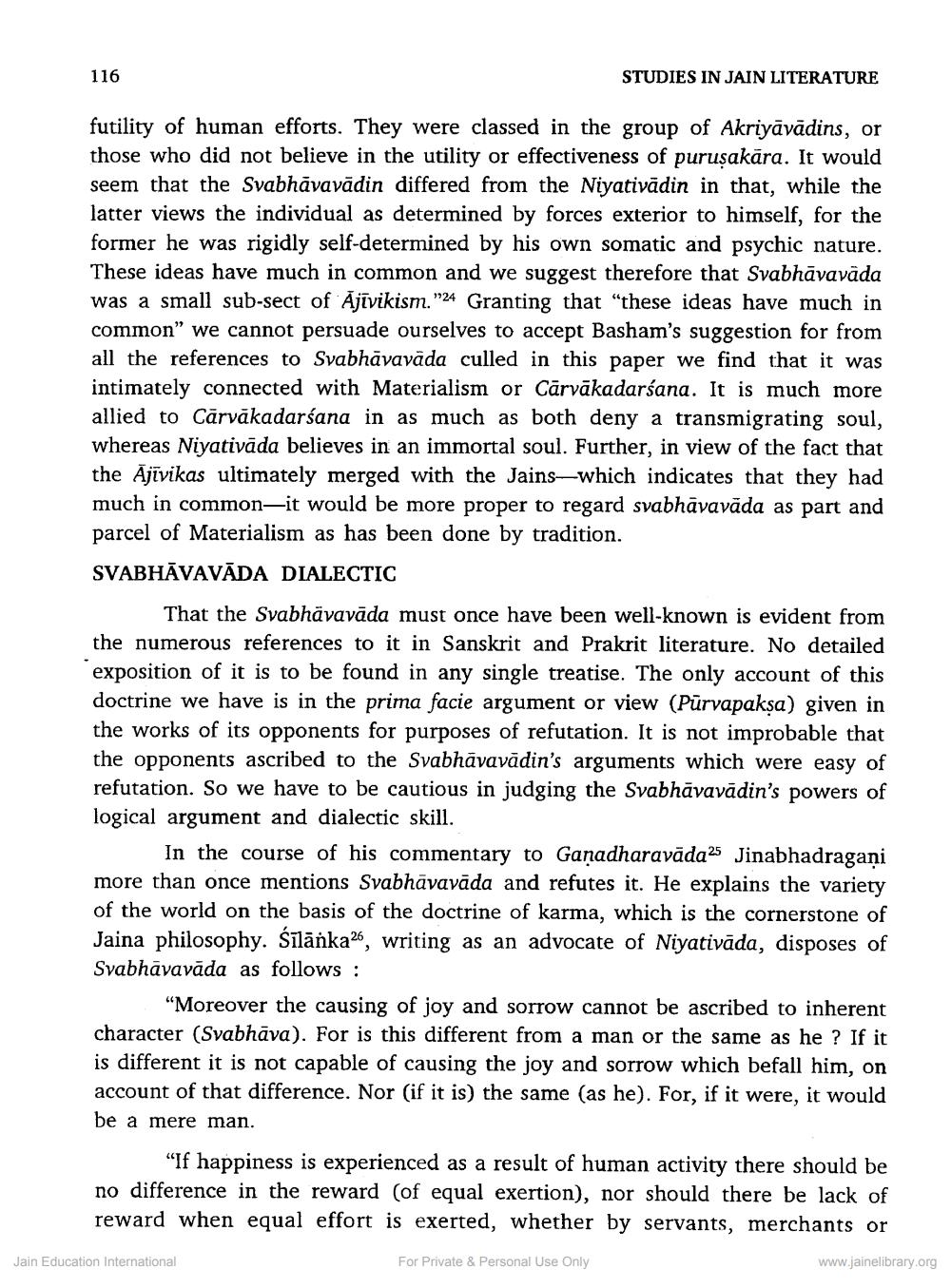________________ 116 STUDIES IN JAIN LITERATURE futility of human efforts. They were classed in the group of Akriyavadins, or those who did not believe in the utility or effectiveness of purusakara. It would seem that the Svabhavavadin differed from the Niyativadin in that, while the latter views the individual as determined by forces exterior to himself, for the former he was rigidly self-determined by his own somatic and psychic nature. These ideas have much in common and we suggest therefore that Svabhavavada was a small sub-sect of Ajivikism."24 Granting that "these ideas have much in common" we cannot persuade ourselves to accept Basham's suggestion for from all the references to Svabhavavada culled in this paper we find that it was intimately connected with Materialism or Carvakadarsana. It is much more allied to Carvakadarsana in as much as both deny a transmigrating soul, whereas Niyativada believes in an immortal soul. Further, in view of the fact that the Ajivikas ultimately merged with the Jains--which indicates that they had much in common--it would be more proper to regard svabhavavada as part and parcel of Materialism as has been done by tradition. SVABHAVAVADA DIALECTIC That the Svabhavavada must once have been well-known is evident from the numerous references to it in Sanskrit and Prakrit literature. No detailed exposition of it is to be found in any single treatise. The only account of this doctrine we have is in the prima facie argument or view (Purvapaksa) given in the works of its opponents for purposes of refutation. It is not improbable that the opponents ascribed to the Svabhavavadin's arguments which were easy of refutation. So we have to be cautious in judging the Svabhavavadin's powers of logical argument and dialectic skill. In the course of his commentary to Ganadharavada25 Jinabhadragani more than once mentions Svabhavavada and refutes it. He explains the variety of the world on the basis of the doctrine of karma, which is the cornerstone of Jaina philosophy. Silanka26, writing as an advocate of Niyativada, disposes of Svabhavavada as follows : "Moreover the causing of joy and sorrow cannot be ascribed to inherent character (Svabhava). For is this different from a man or the same as he ? If it is different it is not capable of causing the joy and sorrow which befall him, on account of that difference. Nor (if it is) the same (as he). For, if it were, it would be a mere man. "If happiness is experienced as a result of human activity there should be no difference in the reward (of equal exertion), nor should there be lack of reward when equal effort is exerted, whether by servants, merchants or Jain Education International For Private & Personal Use Only www.jainelibrary.org




